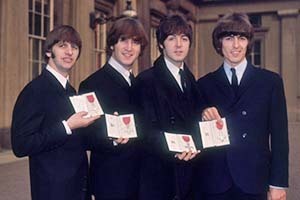Jo-Helen
Once again I agree with much of what you say, particularly about the non-existence of randomness, that is of the ontological variety. True randomness would be so unpredictable that it wouldn’t even form statistical distributions (unlike even quantum events, the classical example of individual events not thought to be caused by any physical laws).
Yet there is plenty we can’t predict because of our own human limitations, such as the behaviours of chaotic systems. Because of that, we can only make an assumption that they are, at heart, lawlike. If we trust the Scripture that says every decision of the lot is from the Lord, then chaotic systems, too, fall under the governance of providence as well as the laws of motion.
Your concession to the “tweaking” of things by God gives another major category of events that are unpredictable, but not ontologically random. Formally, however, an event caused by divine choice from “outside” the system of laws would appear random, except for the fact that it served God’s teleological purpose, for those willing or able to discern that… and scientists, of course, deliberately exclude final (teleological) causes from their methodology.
The fact that you agree that God may, validly, act upon nature in such unpredictable ways is all I was pleading for. The Deists denied such a “violation” of the regularity of nature was permissible to God, on pain of his rationality. Laws are generalisations drawn from repeatable patterns - what is not repeatable is happening for other reasons ordained by God in his freedom, not by chance in its chaos.
I would contest your justification of Deism, however:
Christians had long had a clear view of both the regularity and the contingency of nature - in that Jon Burke is quite correct (my dispute is on the categorisiation of this in terms of universal inviolable laws, rather than the mere obedience of creatures to their God-given natures). Spontaneous generation was a process espoused by both classical and Enlightenment science, not invented by the Church - the Deist Lamarck held to it long after it was called into question by Redi, and it was finally laid to rest as late as 1856 by the devout Catholic, Pasteur.
Mediaeval philosophy thoroughly grasped the regularity of nature (most often in Aristotelian terms of “natures”) - what Bacon and his successors achieved was the methodological empiricism that allowed the quantification of that regularity. The Deists did take that to extremes by insisting that the mechanical philosophy was all that there was. The Deist Leibniz criticized Newton for his belief that the Christian God would be active in nature. Leibniz’s ideal was perpetual motion.
Of course, studying nature will also not tell us if there is a God who functions in nature, and if so how much. Science, then, is just the wrong tool for understanding if God wanted people just like us (and anteaters or artichokes just like them). For that we need to return to the Bible - for example to Genesis describing the care which God took in forming us, or to Job in which God “boasts” of the particular traits of the ostrich he has made, or Jesus as he ascribes the clothing of the lilies to God’s sartorial excellence.
Science also, paradoxically, is incapable of telling us whether there is randomness in nature, other than its scientific definition as “unpredictable”, which of course many things are to scientists as to all human beings. The Bible suggests there is not, and philosophers like Plato or Aristotle would agree. Against them we have, I suppose, the authority of the followers of Epicurus and the modern Open Process theologians.


